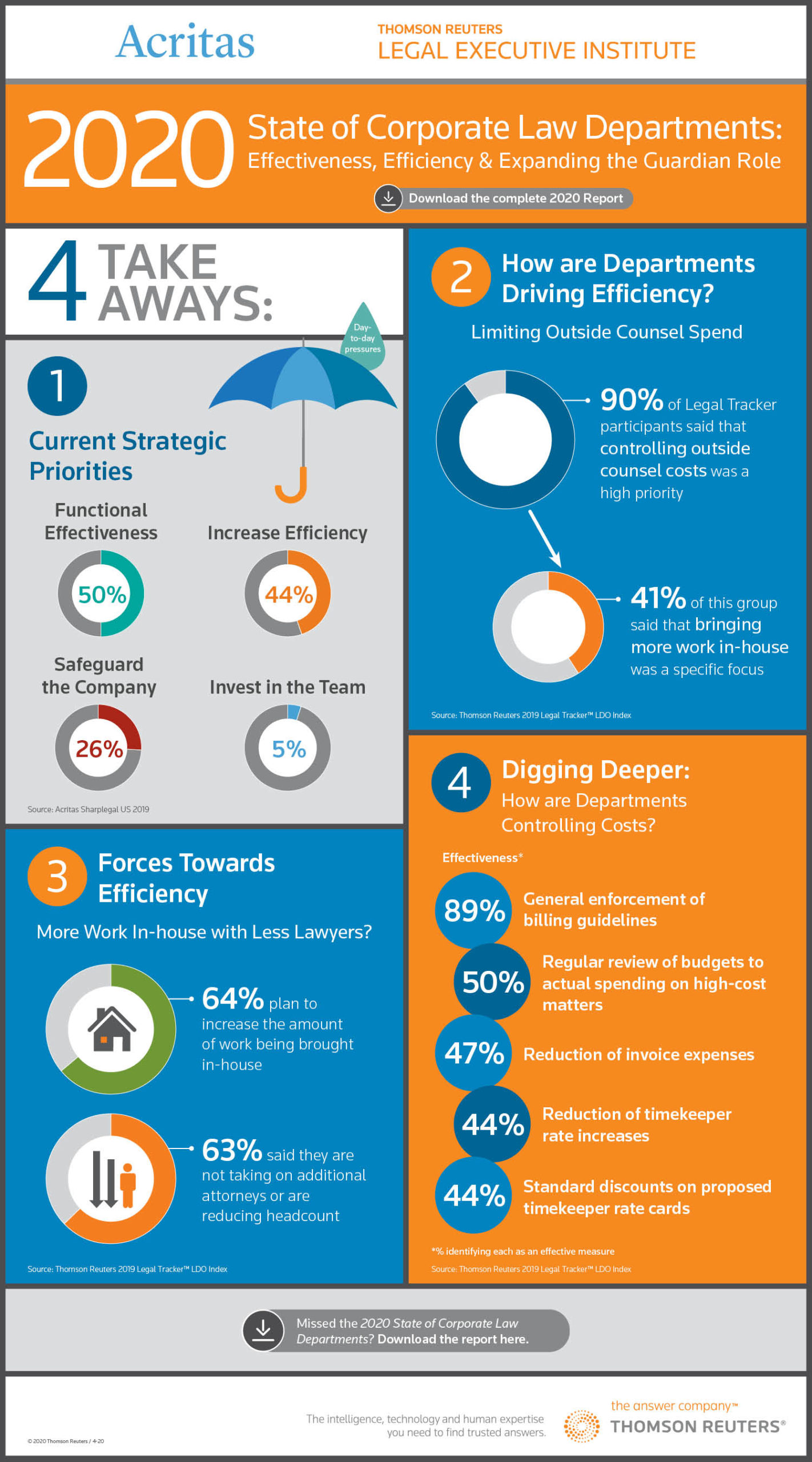A new infographic identifies 4 main takeaways from the recent "2020 State of Corporate Law Departments" report, shedding light on key strategic priorities
t comes as no surprise that amid the current crisis, the heavy pressure that corporate law departments were under on many fronts before has only been exacerbated since the pandemic.
What may be more surprising, however, is that the strategic priorities that corporate law departments identified in late-2019 have not changed even with the market uncertainty brought by the COVID-19 outbreak. Indeed, our research teams went back and spoke again to several general counsel, and they report that while some projects and transactions have been put on hold and many new priorities have arisen, law departments’ core strategic priorities remain as they previously described them.
In fact, in the recent report from Thomson Reuters Acritas and the Legal Executive Institute, 2020 State of Corporate Law Departments: Effectiveness, Efficiency & Expanding the Guardian Role, we actually see that these priorities may even be more important during this crisis.

A new infographic, 2020 State of Corporate Law Departments Infographic: 4 Main Takeaways, uses data from the Thomson Reuters 2019 Legal Tracker™ LDO Index and Acritas Sharplegal US 2019, to identify four main takeaways from the report. Among these are how these strategic priorities have been identified and which are among them are the most important, according to the corporate law department officials surveyed.
Other takeaways explain how law departments are driving efficiency and how their effort to control spending on outside counsel has become paramount. In fact, as almost two-thirds of departments surveyed cite their push to keep more legal work in-house as a way of curbing outside spend, a nearly equal percentage noted their department was not hiring additional lawyers and was even looking at ways to reduce headcount.
Finally, the infographic offers a deeper dig into which methods corporate law departments consider most effective in specifically controlling departmental costs, including enforcing billing guidelines, reviewing budgets, reducing invoice expenses, and more.







